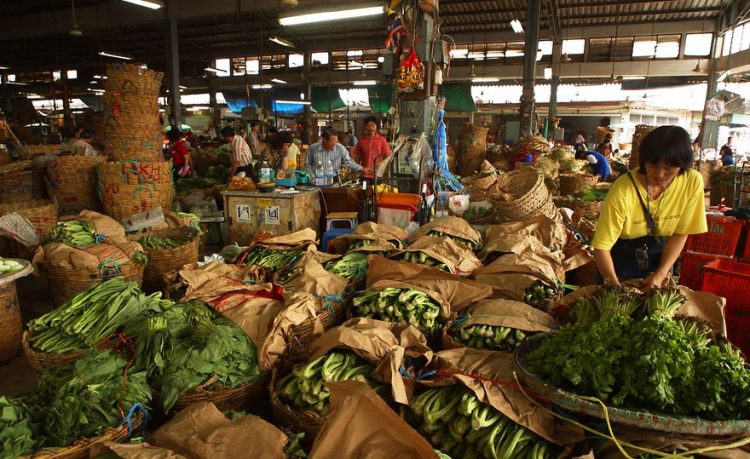Climate change: Trade liberalization could buffer economic losses in agriculture

Climate change affects agricultural productivity and could force up food prices. Photo: Thinkstock Quelle: Potsdam Institute for Climate Impact Research
However, economic losses could be limited to 0.3 percent of global GDP – depending on agricultural trade policies.
“Agriculture is very sensitive to climate change – even a small increase of global mean temperatures can have significant effects on regional crop yields, affecting both the profitability of agricultural production and the share of income spent on food,” lead author Miodrag Stevanović says.
“Our study quantifies economic impacts and analyses the role of international trade as an adaptation measure. We find that economic losses in agriculture could add up to the annual amount of roughly 0.8 percent of global GDP at the end of the century with a very restricted trade regime. As small as this percentage sounds, it actually translates to losses of 2.5 trillion US Dollars and is comparably higher for regions with limited agricultural resources with respect to growing agricultural demand, for example the Middle East, Africa and India. In contrast, further trade liberalization in agricultural commodities could reduce financial damage globally by 65 percent, to 0.3 percent of global GDP.”
Trade can balance economic impacts on agriculture due to climate change
“Both global warming and free trade favor northern regions like Europe and the US, since producers' gains increase as trade patterns shift northwards. At the same time, southern regions like Africa or India could theoretically reduce climate-change-related damages by half through more liberalized food markets,” co-author Alexander Popp explains.
“Irrespective of our assumptions on global trade, climate change will result in reduced crop yields in many areas. At the same time, intensifying production or expanding cultivated land into previously untouched areas may come at a risk: it could lead to additional greenhouse-gas emissions through tropical deforestation or increased fertilizer use.” This could then further enhance climate change pressure on agriculture.
The researchers combined 19 different climate projections with simulations of crop growth to assess economic impacts of climate change in the agricultural sector. While the magnitude of damage varies with different assumptions on crop productivity response to climate change, CO2 plant fertilization effect or socio-economic projection, the study still highlights the important role of trade as a key measure to partly reduce climate change impacts. Modelling challenges such as adverse effects of extreme weather events still remain.
Risks of food shortages also call for poverty reduction measures
If food prices increase due to climate change impacts, households will not only have to spend more on their food consumption, but could also face risks of insufficient access to food and malnutrition.
“The best way to avoid these risks is to limit climate change. However, for impacts that cannot be avoided, an open and diversified trade system can be an important adaptation option. It can account for changes in global patterns of agricultural productivity and thus allow for reducing production costs and enhancing food security,” says Hermann Lotze-Campen, chair of PIK’s research domain Climate Impacts and Vulnerabilities.
“As climate change will have an amplifying effect on the gap between developed and developing countries, reductions in trade barriers will have to be accompanied by measures for poverty reduction and social safety nets.”
Article: Stevanović, M.; Popp, A.; Lotze-Campen, H.; Dietrich, J.P.; Müller, C.; Bonsch, M.; Schmitz, C.; Bodirsky, B.; Humpenöder, F.; Weindl, I.: The impact of high-end climate change on agricultural welfare. Science Advances. [DOI: 10.1126/sciadv.1501452]
Link to the article: http://advances.sciencemag.org/content/2/8/e1501452
For further information please contact:
PIK press office
Phone: +49 331 288 25 07
E-Mail: press@pik-potsdam.de
Twitter: @PIK_Climate
Media Contact
All latest news from the category: Agricultural and Forestry Science
Newest articles

Properties of new materials for microchips
… can now be measured well. Reseachers of Delft University of Technology demonstrated measuring performance properties of ultrathin silicon membranes. Making ever smaller and more powerful chips requires new ultrathin…

Floating solar’s potential
… to support sustainable development by addressing climate, water, and energy goals holistically. A new study published this week in Nature Energy raises the potential for floating solar photovoltaics (FPV)…

Skyrmions move at record speeds
… a step towards the computing of the future. An international research team led by scientists from the CNRS1 has discovered that the magnetic nanobubbles2 known as skyrmions can be…





















